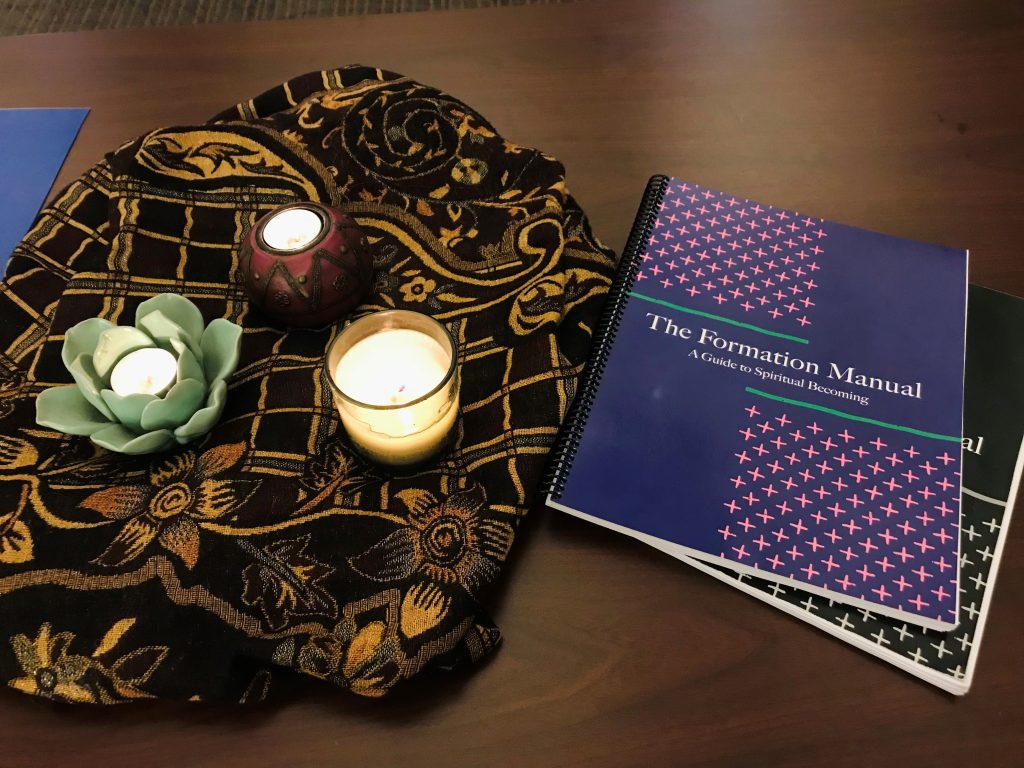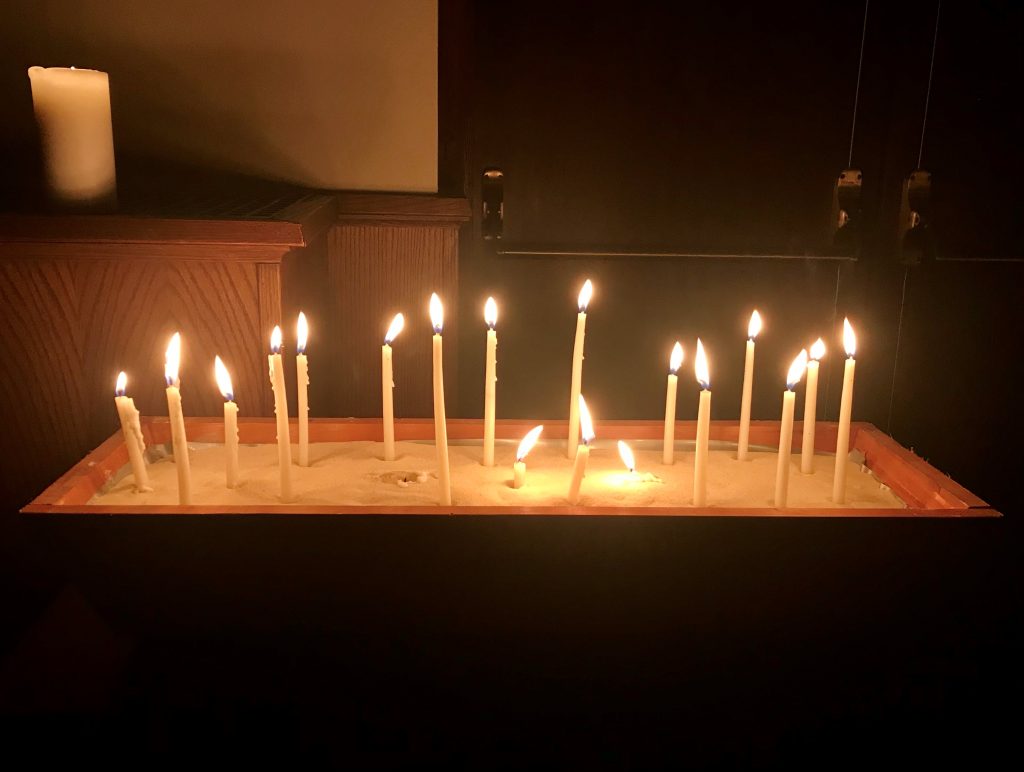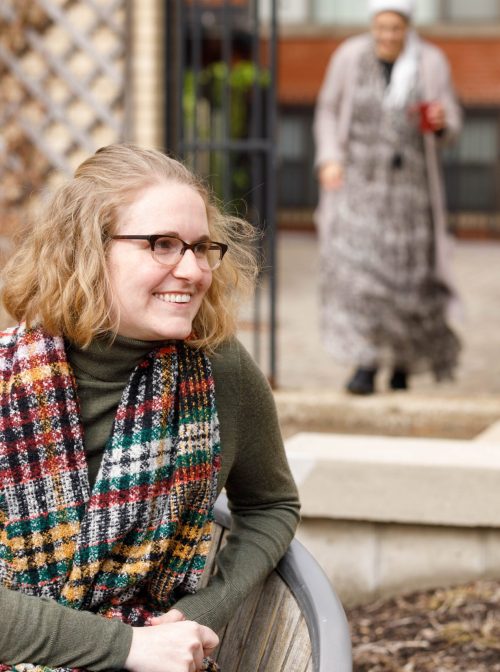Imagine you are beginning a spiritual journey, and rather than “shopping” around houses of worship, “trying on” spiritual practices, or purchasing a new sacred text, instead you ask yourself: “What do I hope to draw nearer to this year?”
In asking that, you might consider the word or words that open your heart: the sacred, source, spirit, God, love, emptiness, true self, grace, the ground of being, Buddha, nature, justice, the divine, Allah, awareness, Christ, that which is greater than ourselves…
The word you choose becomes your purpose, the North Star on your pathway. You begin to shape your life around noticing how your word is alive within and around you, and how you might cultivate closer relationship with it.
This is how one’s journey with the Formation Project begins. We each find language for ourselves that has a home in our heart, a word that might open up our imagination and unfold a path before us.
—
The Formation Project began about five years ago, sparked by an exchange between Catholic nuns and “spiritual but not religious” community builders. When the latter group found out about the formation that Catholic sisters go through in order to enter their community, namely the year-long novitiate in which one’s central focus is their spiritual life, they were enthralled. They asked the sisters, and each other: How might we, those of us outside of religious traditions and communal containers, have our own year of committed spiritual growth and formation?

From there, a collaboration was born: spiritual elders of various traditions offered the gifts of spiritual insight that their communities have spent centuries honing, and the spiritual innovators began re-imagining those mechanisms for our own moment in spiritual life. In addition to this grounding wisdom from monastic and religious communities, the designers brought in wisdom from across different disciplines as well; groups like Alcoholics Anonymous and Recovery Café inspired the small group structure, while theologians like Howard Thurman inspired some of the core wisdom of spiritual discipline.
What emerged as the foundation was a journey of transformation. In the words of the project:
“Formation invites the transformation of the human heart. As we become whole, rooted, and aligned with the divine, we become ever-more equipped to work with that spirit in transforming the world. There begins the human change that makes social change possible: the movement toward a transformed way of being, and being together.”
In the Formation Project, transformation as a process is held in a rhythm of attention to: the inner life, tending the sacredness in ourselves; the outer life, tending the sacredness in others; and life beyond, tending the sacredness of which we are a part.
However, intention and attention need practice and discipline to truly form someone. So, the heart of the Formation Project is a structure: a year-long committed container to support individuals who are ready to dive deep into a new, or renewed, way of life.

The year begins with three months of discernment, “a time to discover and prepare, in the absence of judgement, for the unfolding in you.” With the support of guides and resources, the seeker comes to a decision about what they are saying “yes” to within themselves. From there, those interested commit to the next nine months of intensive spiritual formation, based on commitments to daily personal practice and weekly small group. Through the small group, individuals share their own spiritual autobiographies as well their language of the sacred so that they may be held in “loving accountability” toward their goals of spiritual growth. At the close of the experience, each person makes commitments, witnessed in community, as step toward a lifetime of growing into the way of being that they began this year.
—
At this point, nearly 50 individuals have moved through the year of formation in two separate virtual cohorts in 2019 and 2022. This year, in-person groups are beginning; the first in Erie, PA with 15 people currently committed to the journey. In 2021, we published “The Formation Manual: A Guide to Spiritual Becoming” as an effort toward open-source wisdom for spiritual formation, and it has been downloaded by hundreds of people. Into the future, we expect more online and in-person groups to form, as well as more people to use the Manual themselves or among friends and intentional communities.
In a time when more and more people are walking away from the traditions that they inherited, and are seeking to make their own paths, naming the sacred for oneself has a particular power. Through the act of naming one’s intention, the gaze of one’s attention, we no longer are recipients of stale stories or tired traditions; we become co-creators with the sacred right here and now. We become narrators for our spiritual growth, and agents of our pathway.
The core belief of The Formation Project is that we each have direct access to the depths of our spiritual life, yet we also need support and structure to help get us there. At our first gathering for the Formation Project in Erie, we read this quote from John O’Donahue, found in an essay called “The Priestliness of the Human Heart”:
“To be born is to be chosen. You have a task of creativity to realize here that no one else can accomplish. If someone else could bring this to birth, they would be in your place and you would never have been sent here… you are an artist of the eternal.”
You, too, are an artist of the eternal. What are you here to create?
Katie Gordon is an organizer and storyteller committed to spiritual and religious evolution today. She is a co-founder of Nuns & Nones, an intergenerational and interspiritual alliance co-creating new containers for community and action. Katie is also a staff member of Monasteries of the Heart, an online monastery of over 20,000 members that translates Benedictine wisdom for contemporary seekers. She also coordinates the Formation Project, a cohort experience for individuals to deepen in their inner lives, outer lives, and life beyond. Katie lives in Erie, PA with the Benedictine Sisters in a small intentional community called the Pax Priory, a site of monastic tradition and experimentation.




